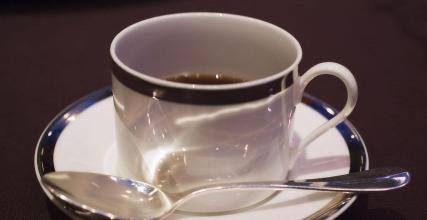Introduction to the manor characteristics of the fragrant and pure Salvadoran coffee flavor producing area
China Coffee Network
Savanna climate. Plain area belongs to tropical rain forest climate, mountain area belongs to subtropical forest climate. The annual average temperature is 25-28℃, the annual precipitation in mountainous areas is more than 1,800 mm, and that in coastal areas is about 1000 mm. May-October is the rainy season.
Don't underestimate El Salvador's coffee production. In its heyday, it was the fourth largest coffee producer in the world, but decades of civil war almost brought down the coffee industry. Fortunately, the war stopped in recent years and the coffee industry recovered. The only benefit of the civil war for El Salvador was that farmers left their fields barren and could not catch up with the most popular Catimo train of cultivation in the past two decades, thus preserving the ancient bourbon and tibeka varieties. In other words, El Salvador still cultivated in the most traditional shade method, which had a positive effect on the aroma of coffee. In 2005, the Salvadoran hybrid Pacamara swaggered at the coe, leaving many international cup testers confused and wondering how to grade it. Unexpectedly, this hybrid bean not only broke the boundaries of coffee, but also expanded the visibility of Salvadoran coffee.
Salvadoran fine coffee is concentrated in Santa Ana in the west and Charantan Nango volcanic rock producing areas in the northwest. In recent years, almost all of the top 10 cup tests come from these two producing areas, with an altitude of about 900-1500 meters. Bourbon is the main one (accounting for 68%), followed by Pacas (accounting for 29%), and mixed Pacamara, Duraai and Cadura only account for 3%.
The coffee harvest lasts from November to March. All are hand-picked to harvest fresh coffee.
Generally speaking, Salvadoran coffee inherits the mild qualities of Central American coffee, which is soft, slightly sour and has a good sweetness. At the same time, it has its own characteristics: aromatic taste slightly sour, very soft; pure without impurities, taste balance is excellent; smooth feeling like cream chocolate is impressive; coffee in the mouth that kind of dense feeling makes coffee have a deep taste, long aftertaste
El Salvador, located in the northwest of Central America and bordering the Pacific Ocean in the south, is one of the birthplaces of ancient Mayan civilization. The volcanoes, plateaus, lakes and bathing beaches along the Pacific coast are all very pleasant. But El Salvador is best known for its unique, mild-tasting coffee.
El Salvador is one of the small countries of Central America and has a very dense population. People love coffee here. Salvadoran coffee tastes well balanced. Salvadoran coffee exports account for 40 per cent of national exports. The best quality coffee is exported from January to March each year, and 35% of the extra hard beans are exported to Germany. In the early 1990s, El Salvador's national economy was greatly damaged or even destroyed due to the impact of war. Coffee production dropped from 3.5 million bags in the early 1970s to 2.5 million bags in 1990 - 1991.
In El Salvador, Cusca Bappa produces the finest coffee beans, which are slightly lighter in weight, aromatic, pure and slightly acidic. Like Guatemala and Costa Rica, coffee in El Salvador is graded according to altitude, with the higher the altitude, the better the coffee. The best brand is Pip, whose quality has been recognized by the American Organic Certification Society. Another rare coffee is Pakmara coffee, a hybrid of Pacas coffee and Malagojipi coffee, best grown in western El Salvador, adjacent to Santa Ana, near the border with Guatemala. Pakmara coffee is full of particles, but not too strong

Important Notice :
前街咖啡 FrontStreet Coffee has moved to new addredd:
FrontStreet Coffee Address: 315,Donghua East Road,GuangZhou
Tel:020 38364473
- Prev

Meticulous, smooth, refreshing and elegant Cuban Crystal Mountain Coffee boutique Coffee Bean flavor Manor
At present, Jingshan coffee is very precious. This is mainly for two reasons. The first reason is the economic sanctions imposed by the United States against Cuba and the non-opening up of Cuban imports. The second reason is that at present, Cuban coffee beans are mostly acquired by the French and Japanese markets, especially Japan, so it is difficult to buy coffee beans directly from Cuba. Still, Cuban coffee
- Next

An introduction to the characteristics of Nicaraguan Coffee Flavor Manor
China Coffee Network Coffee is Nicaragua's main export product. According to the president of the Nicaraguan Coffee Farmers' Federation, due to the poor harvest of coffee in Nicaragua's Pacific region, the country's total coffee production in 1998 may be 12% lower than that in 1997. In the coffee year of 1997 and 1998, Nicaragua harvested 1.422 million bags of coffee (each bag of 46kg), which is the last 14 years of coffee.
Related
- Detailed explanation of Jadeite planting Land in Panamanian Jadeite Manor introduction to the grading system of Jadeite competitive bidding, Red bid, Green bid and Rose Summer
- Story of Coffee planting in Brenka region of Costa Rica Stonehenge Manor anaerobic heavy honey treatment of flavor mouth
- What's on the barrel of Blue Mountain Coffee beans?
- Can American coffee also pull flowers? How to use hot American style to pull out a good-looking pattern?
- Can you make a cold extract with coffee beans? What is the right proportion for cold-extracted coffee formula?
- Indonesian PWN Gold Mandrine Coffee Origin Features Flavor How to Chong? Mandolin coffee is American.
- A brief introduction to the flavor characteristics of Brazilian yellow bourbon coffee beans
- What is the effect of different water quality on the flavor of cold-extracted coffee? What kind of water is best for brewing coffee?
- Why do you think of Rose Summer whenever you mention Panamanian coffee?
- Introduction to the characteristics of authentic blue mountain coffee bean producing areas? What is the CIB Coffee Authority in Jamaica?

